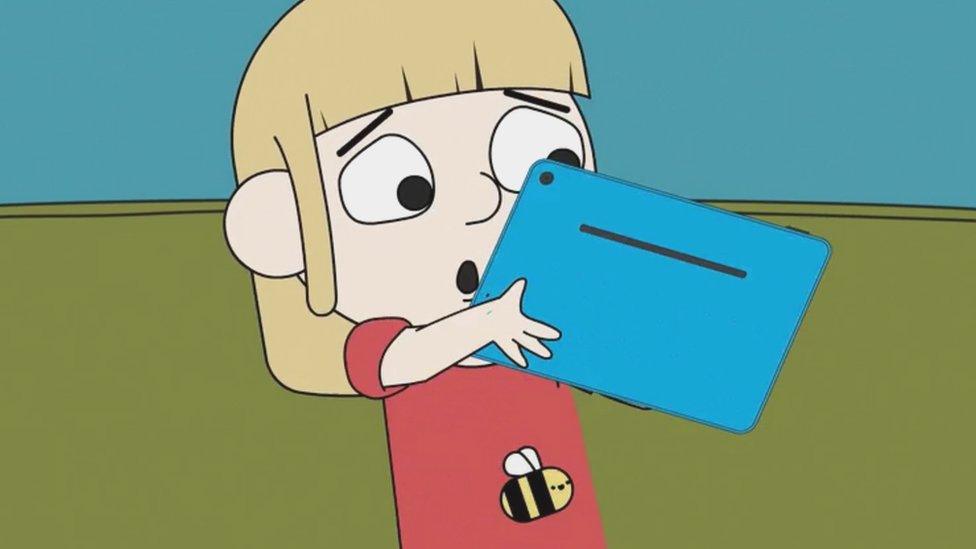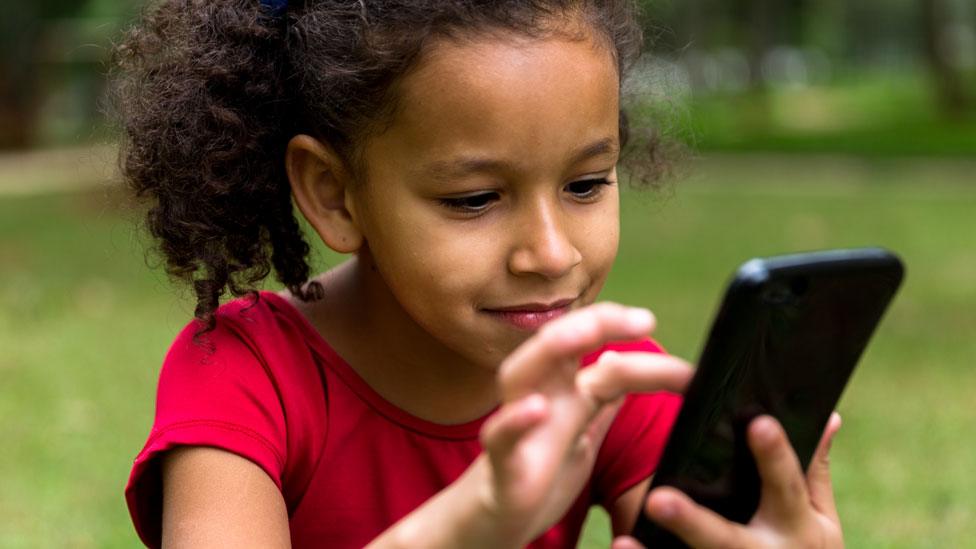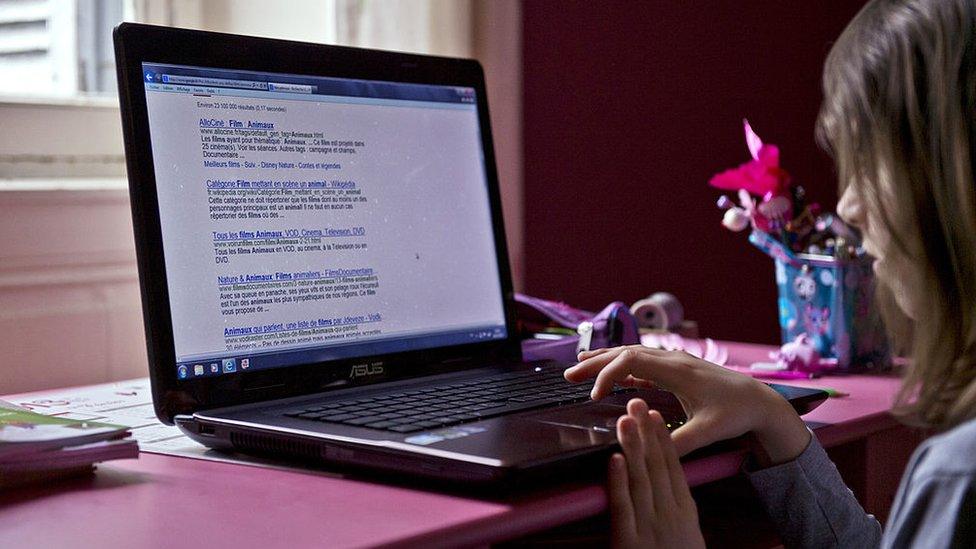Cartoons about online safety launched for four-year-olds
- Published

In the cartoons, Jessie and her friends encounter negative experiences online
Children aged four to seven are being targeted in a new online video campaign from the National Crime Agency (NCA).
The series of videos called Jessie & Friends, external is intended to teach children how to keep themselves safe online, with a view to protecting them from sexual abuse and other threats.
Children will be directed to Jessie & Friends via "video clips and a catchy song" on social media sites.
The NSPCC described the move as "a positive step".
Jessie & Friends features three animated children who explore online videos and social media - but they soon realise that dangers are lurking there.
In the first episode, Jessie watches a seemingly innocuous video of a happy crocodile that suddenly changes to feature an angry version of the reptile instead.
Such videos, which can disturb young children, have been known to proliferate on YouTube and other sites.
Most British three- to four-year-olds use the internet now, according to research by Ofcom, external.
In 2018, 25% of their parents said they were worried about children giving out details to inappropriate people online - a rise from 18% the previous year.
In another episode, the children are joined in an online game by a seemingly helpful stranger who then tricks them into losing.
'Disturbing behaviour'
"Investigators are seeing a very disturbing change in offender behaviour, with the increasing contact abuse of pre-verbal and very young children," the NCA said in a statement.
Parents, carers and teachers needed to be able to discuss online safety with children in a sensitive and positive way, said NCA director Rob Jones.
Jessie & Friends made it easier for parents to raise the subject of online safety with children, said Will Gardner, chief executive of Childnet.
"It is a very useful way for parents to get that conversation started," he told BBC News.
"It's really aimed at parents - this is a tool for you to use to get that conversation going with your children."
Childnet was increasingly working with children as young as three to teach them how they could protect themselves on the web, he said.
The videos were "a positive step", the NSPCC's associate head of child safety online, Andy Burrows, said.
"However, tech giants also need to take responsibly for protecting children," he said.
The NSPCC is calling for the government to appoint an independent regulator that can levy "tough consequences" on social networks and online services that fail to keep children safe.
- Published2 February 2018

- Published4 January 2018

- Published5 January 2017
